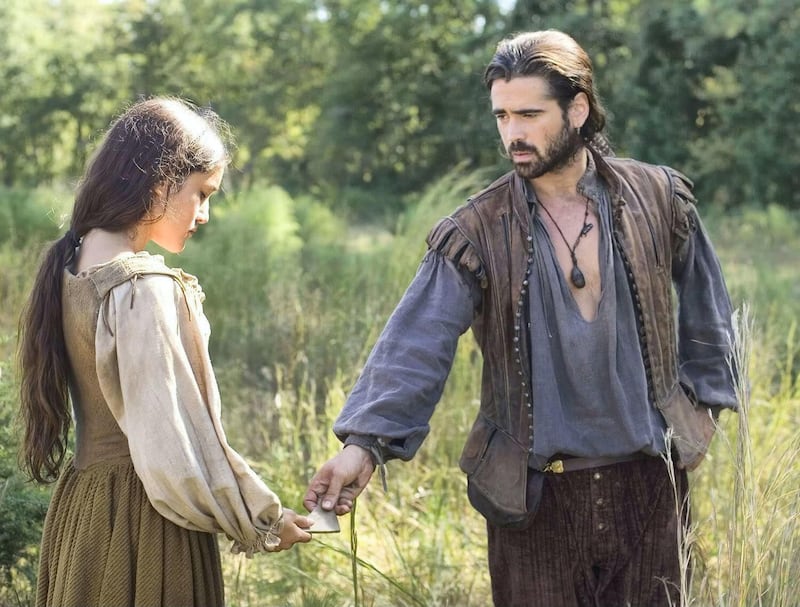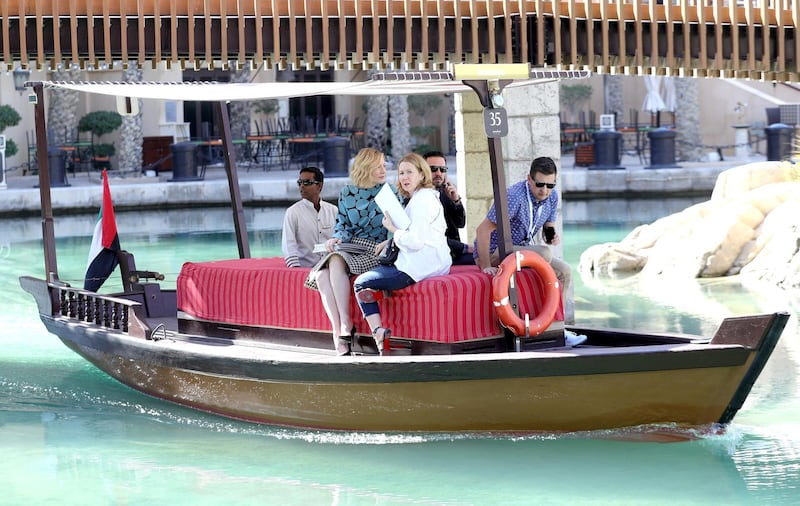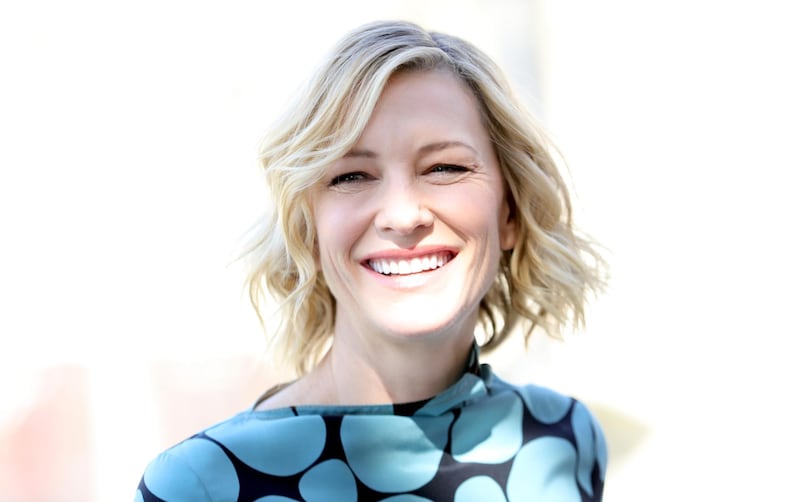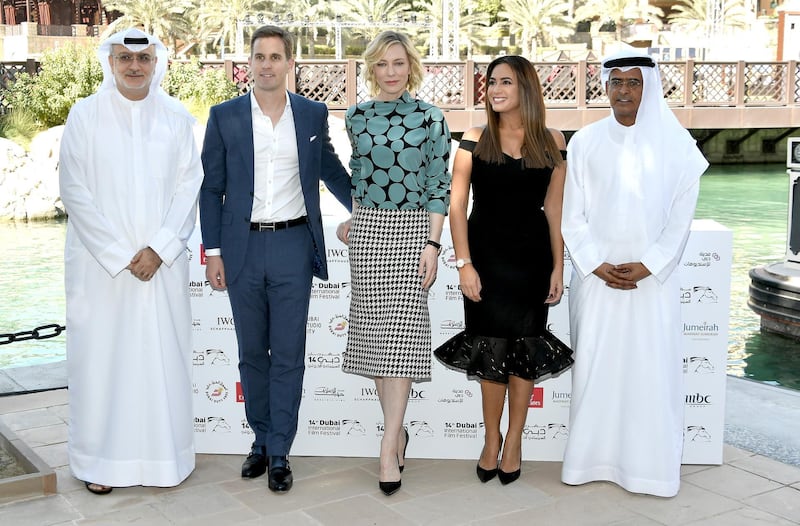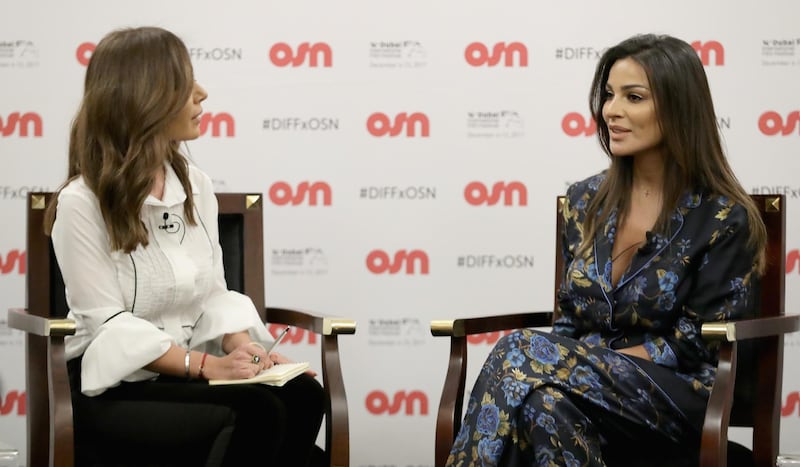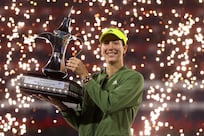The National caught up with Hostiles star Q'orianka Kilcher following the film's opening slot at the Dubai International Film Festival, and the part-Native American actress seemed to be enjoying her debut in the desert.
“I feel like I’ve touched down in some utopian paradise, all these little boats and everything,” she gushes from a balcony in the Madinat Jumeirah resort. “The premiere and the festival in general has been a wonderful experience so far. There’s such a warmth from all the people and it was great to see all the women in their gorgeous gowns – I felt so underdressed.”
With Oscars season in full swing, Kilcher has been is in the middle of an extended promotional push for the movie, beginning with its world debut at Toronto in September. However, she says her experience in Dubai has been quite different to other festivals. “I don’t think I’ve ever seen a theatre quite like that before in my life. We did Toronto, but this is so different. Some festivals are so rigid, but here everyone just goes with the flow. Things happen, or don’t happen. I guess it can get frustrating, but I’m loving the atmosphere.”
It is a commonly heard complaint in the Arab world that Hollywood often overlooks the region, choosing to cast western actors in Arab roles, such as Antonio Banderas' much-derided role in 2011's Black Gold, or even as far back as 1962's Lawrence of Arabia, which saw Alec Guinness and Anthony Quinn playing leading Arab roles.
Kilcher, a keen advocate of Native American rights, seems to have the opposite problem – her latest role as Cheyenne squaw Elk Woman is the latest in a long line of native roles, including Pocahontas in Terence Malick's The New World (2005), Tiger Lily in SyFy's Peter Pan adaptation Neverland (2011) and Rayen in award-winning 2013 short Running Deer.
I ask if she worries about becoming typecast. "I wouldn't say I worry about it," she says. "If there's a Native American role, then obviously I'm right for it. I'm proud to be indigenous, and I'm proud of any opportunity to represent Native Americans. Little by little, there's progress in telling the truth and portraying Native Americans in a dignified and honourable way, and I hope it continues to go down that road."
At the same time, however, Kilcher is keen to not merely be seen as "the Native American actress". "I recently got done shooting a TV show in Budapest for six months. It's called The Alienist, based on Caleb Carr's novel. The character in the novel is written with blonde hair and blue eyes, and they cast me. To a degree, I think Hollywood is becoming more inclusive with actors and film-making, and breaking down those barriers. It's coming down more to the work. If you're good at your job, you can do it."
Kilcher also played Hawaii's Princess Kaiulani in the 2010 film of the same name, and says she is comfortable representing cultures outside of her own: "I felt OK with that, although I took the responsibility seriously," she says. "I got permission from people very high up in Hawaiian society. That's another part of American culture that's been pushed under the rug, the US overthrow of the monarchy and the violence, and I felt that was another important story to tell."
__________________________
Read more from Diff 2017:
[ Watch: 5 most anticipated films at this year's festival ]
[ Emirati cinema takes centre stage at this year's festival ]
[ Film festival announces 140-film line-up ]
[ Festival to kick off with Christian Bale and Rosamund Pike's Hostiles ]
__________________________
With her ability to cross cultural lines on screen, could we perhaps expect to see Kilcher adding her name to the list of non-Arab actors portraying Arabs? “It’s a fine line,” she admits “Ultimately, it depends on the project and the role and the people telling the story. There are roles that I’ve turned down if it’s representing an ethnicity that I’m not familiar with, or if it’s representing an ethnicity in a degrading way. It might be a great film and a fantastic role, but just for me I don’t feel comfortable representing that community or those people in some cases.”
Kilcher sees everyone as people, whether Arab, Native American or otherwise "Native Americans are not relics in a museum," she says. "We're normal people just like anybody else. We go to college, we're doctors, we're taxi drivers. We don't all run around with a feather in our hair, so why not cast us as doctors or anything else? It doesn't have to be a Native American role. It's just a role."
